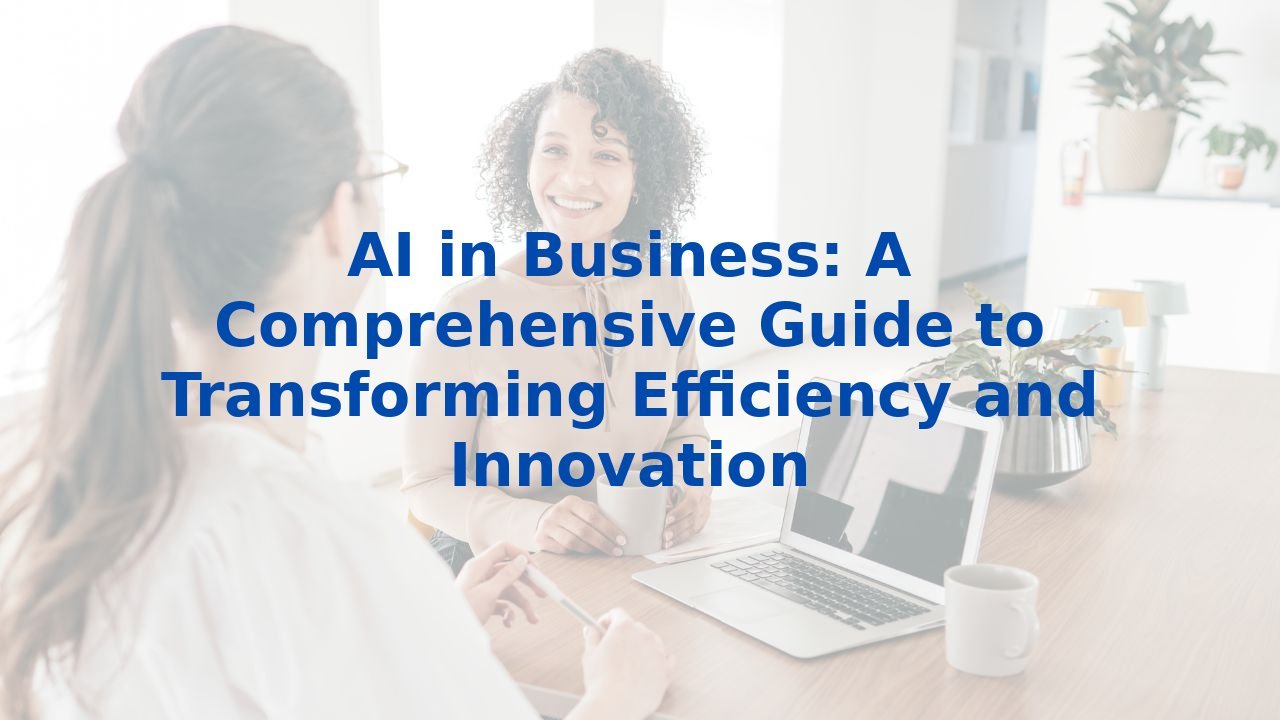AI in Business: A Comprehensive Guide to Transforming Efficiency and Innovation
Enhancing Business Processes with AI: A Guide to Efficiency and Innovation
In today's fast-paced business environment, organizations are increasingly pursuing avenues for enhanced efficiency and innovative practices. Artificial intelligence (AI) stands as a transformative force, unlocking unprecedented opportunities for growth and competitive advantage. In this guide, we will explore various business processes that AI can enhance, focusing on the immense potential for improving efficiency within any organization.
1. Enhanced Decision-Making
At the core of any successful business is effective decision-making. AI equips organizations with advanced tools for automating data analysis, enabling them to generate unprecedented insights. With the ability to process enormous datasets at remarkable speeds, AI algorithms can pinpoint patterns and trends that may elude human perception. This is particularly vital in fields such as:
- Retail Inventory Management: Retailers leverage AI to maintain optimal stock levels, ensuring that products are consistently available to meet consumer demands.
- Fraud Detection: Financial institutions harness AI to thwart fraudulent activities, safeguarding both organizational integrity and customer trust.
- Data-Driven Strategy: Even professional sports teams utilize AI to enhance their strategic planning, demonstrating the versatility of this technology.
2. Increased Efficiency and Productivity
One significant advantage of AI is the automation of repetitive tasks, allowing human resources to focus on high-value endeavors. The result is a remarkable boost in productivity. Examples include:
- Customer Service Automation: Organizations deploy AI-powered chatbots to address routine inquiries, freeing human agents to tackle more complex customer issues.
- Supply Chain Optimization: AI-driven robots efficiently pick and pack orders, leading to reduced labor costs and streamlined operations.
- HR Automation: Applicant Tracking Systems (ATS) powered by AI enhance the recruitment process by automating resume screenings.
3. Improved Customer Experience
AI transforms the customer experience through personalization—a key driver of brand loyalty. By analyzing customer data, organizations can implement tailored marketing strategies based on individual preferences, leading to:
- Personalized Recommendations: AI curates product suggestions that resonate with customers, significantly enhancing engagement.
- 24/7 Support: AI chatbots offer around-the-clock assistance, reducing wait times and boosting customer satisfaction.
4. Cost Savings and Resource Optimizations
A well-implemented AI strategy can dramatically lower operational costs by automating mundane processes and refining overall workflows. Consider these examples:
- Inventory Management: Businesses apply AI forecasting to predict customer demand accurately, optimizing stock levels and minimizing waste.
- Supply Chain Efficiency: Companies utilize AI to anticipate demands, ensuring timely replenishment and streamlining supply chains.
5. Innovation and Competitive Advantage
AI serves as a catalyst for innovation, enabling the identification of patterns within complex datasets that can propel research and development. Key areas influenced include:
- Pharmaceutical R&D: AI accelerates the discovery of new treatments by discerning patterns in extensive datasets that might lead to breakthroughs.
- Predictive Maintenance: Aerospace firms adopt AI to foresee maintenance needs, ultimately enhancing safety and reducing downtime.
6. Risk Management and Fraud Detection
AI significantly contributes to risk management by minimizing human error and preemptively addressing potential hazards. For instance:
- Fatigue Detection: AI solutions analyze facial expressions to gauge employee fatigue, effectively reducing workplace risks.
- Driver Fatigue Monitoring: Logistics companies utilize AI to monitor driver conditions, prioritizing safety in transportation operations.
The Importance of Training Employees for AI
While the benefits of AI are immense, adequately training employees to work alongside these evolving technologies is critical. Here are several advantages of investing in employee AI training:
- Skill Development: Training equips employees with essential skills for effective collaboration with AI tools, such as data analysis and machine learning.
- Adoption and Integration: Comprehensive training ensures a seamless integration of AI into existing workflows, maximizing overall benefits.
- Error Reduction: A well-trained staff can leverage AI capabilities to minimize errors, thus enhancing the quality of work.
Conclusion
AI is redefining the business landscape by enhancing decision-making processes, boosting efficiency, enriching customer experiences, and generating cost savings. By capitalizing on these advantages, organizations can embark on a journey of innovation and distinction. As AI technologies continue to advance, investing in employee training is essential to unlock their full potential and influence business outcomes positively.
Embracing AI while empowering employees can create an ecosystem where efficiency and innovation thrive. Connect with a better tomorrow by integrating these technologies thoughtfully and strategically.



